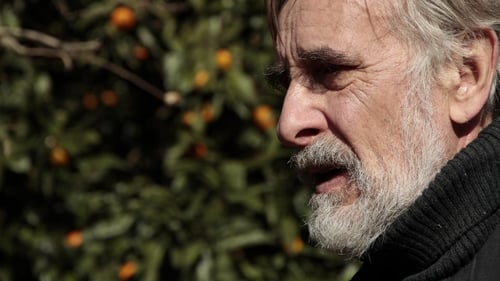
Music
ペレストロイカの時代、ソビエト連邦から独立しようとするジョージアとアブハジアの間で領土をめぐる紛争が起こった。殆どの村人が逃げ去った後、最後の収穫のために残ったイヴォの農園でゲリラ同士の戦闘が始まり、多くの死傷者が出た。イヴォは瀕死の二人を助けて自宅で介抱しようとするが、その二人は敵同士だった。エストニア人で中立の立場にあるイヴォは「俺の家で殺しは許さない」と宣言し、憎み合う二人に手料理を振る舞う。食事を共にし少しずつお互いの事情を理解し始めた二人は、傷が癒えていくとともに和解へ向かうのだが・・・。

Music
After 16 years of imprisonment, 40-years-old Gogliko is released from jail. He doesn't exactly know what he did that deserved 16 years of jail time. A free man, a changed country awaits him. His personal life has drastically altered. His parents have passed and most of his friends have died during the Civil War period. Gogliko realizes that he will not be able to find his place in this "new" Georgia, only thing he has to do is to care about his passed friend's 16-years-old son.

Music
The Soviet Union has collapsed. Civil and ethnic wars have broken out in Georgia, Azerbaijan, and Armenia, three republics in the Caucasus. The post-Soviet Caucasus have turned into one large conflict zone. Two radically different people with different ideals, problems, and goals are united by the conflict zone. Gogliko, a Tbilisi street boy, and Spartak, a Sukhumi sniper, are forced to solve problems of the street and problems of the state together. For one, the goal is to get back the money he lost gambling; for the other, it is to carry out a general's absurd military mission. In spite of it all, their paths cross and their lives are changed forever.

In the hot summer of 1917, the nineteen-year-old peasant Georgy Zakareishvili left his village in search of work and, settling on a French ship, soon found himself in Paris, where he married a Frenchwoman. Modest wealth, beloved wife, sons and a faithful friend helped him to endure separation from his homeland. When the opportunity came to his homeland, George was already old and could not postpone the upcoming meeting with his native Georgia. He tried to convey his love to his grandson George: he sang folk songs, taught Georgian, talked about the people of his village. And now, in fulfillment of his grandfather’s orders, George the Younger took his ashes to his homeland...



